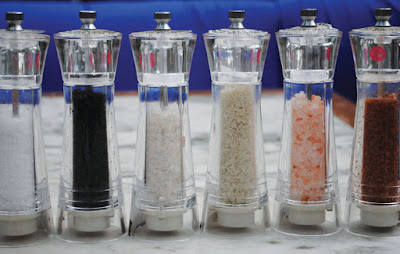WELCOME TO OUR FIRST NEWSLETTER!
Food for Purpose (F4P) is a unique
organisation which seeks to educate and empower groups and communities with
reference to Nutritional Health. The decisions we make regarding nutritional
intake and lifestyle, directly or indirectly impact our ability to fulfill our
God given purpose in life.
Optimal Nutritional health is
crucial for the fulfillment of purpose, and Food for purpose seeks to impart
audiences with knowledge and skills to promote mindful eating and functioning
for the family.
The very first F4P event took
place on 31st January 2016 at St. Anselm’s church Hall in
Dartford.
This session was dedicated to men’s
nutritional health. In particular Afro-Caribbean men were targeted for this
session as part of the campaign t raise awareness and curb the increasing
prevalence of long term conditions in these communities.
Why focus on men?
Men, particularly those of
Afro-Caribbean origin, are known for not readily accessing healthcare -
often by the time such men use healthcare services it is out of duress or fear.
This is especially so in many church
communities and other religious organisations.
It has been reported that black men know more about their
cars than their bodies! This is concerning! There
is a need for increased accessibility to health care, by black men especially.
Spiritualising of health related issues or being
superstitious; or being in denial is not helpful.
The workshop was well attended
topics covered included:
·
Function
of food
·
Appetite
and hunger
·
Satiety
·
Energy
balance – weight loss
·
Energy
in
·
Energy
out
·
Fluid
The interactive sessions encouraged
the men (and women who attended) to understand and be mindful of the
differences between fueling the body in response to hunger; and how we respond
to the triggers which drive our appetites. The phenomenon of Satiety was
also introduced.
The somewhat tricky topic of
abdominal fat or belly fat in men was tabled and the dangers of increased
intra-abdominal fat was discussed.
Men were issued with tape measures
to determine their risk for diseases. They also used Body mass index –(BMI) to estimate
levels of obesity.
Recommendations
for increased activity in line with government guidance, examples of moderate
aerobic and resistance exercise was discussed.
Fluid intake was addressed: at least
8-10 cups/glasses per day was recommended (2 – 2.5 litres
daily). Water was hailed as the general fluid with no calories. The sugar
content of popular drinks was shared, and a review of
the nutritional content of malted drinks like
Supermalt/Vitamalt/Maltina - was discussed.
The importance
of hydration was emphasised, and charts showing the colour of
healthy urine was also shared so that men could check their 'wee,'
to determine approximate levels of
hydration.
Feedback from the workshop:
“F4P was very informative and well presented… we
need more time to cover the questions and more discussion.”
“..It was cosy, comfortable and allowed
interaction between delegates..”
“Each session was
enjoyable – more please!”
“I will appreciate this
seminar every quarter…”
“It
was interesting, interactive and informative – I liked your style of marrying
science with scriptures …”
If you would like to host a F4P seminar in your
organisation please contact us via foodforpurpose@gmail.com
or get in touch via the Facebook page ‘Food for
purpose’
or
via Twitter @foodforpurpose
Watch out for further dates of seminars and
workshops!




